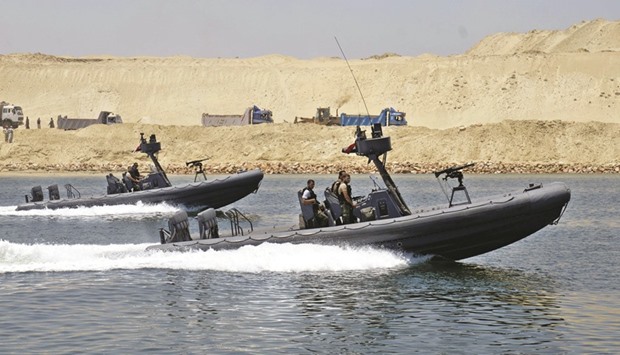Stores were running low of baby milk and suppliers had hiked prices. So the Egyptian government called in the army.
Trying to placate a population frustrated over the state of the country’s finances and rampant inflation, the military said it would import millions of tins of formula this month to sell for half the retail cost. The nation is used to relying on the armed forces for more than just security: Their economic footprint includes everything from car plants and bottled water to hotels, gasoline stations and an international school with cut-price tuition.
“They get things done,” said Fatma Hussein, a 25-year-old mother of two who was shopping for groceries in Cairo. “Of course, in principle, this shouldn’t be happening. You shouldn’t have a system that allows for prices to jump like they do, but I can’t put principles into the baby’s bottle.”
The military’s role in the economy is nothing new, yet its increasing influence and trampling of competition recently has exposed the deterioration in Egypt as the government tries to finalise a $12bn International Monetary Fund loan.
A 13% devaluation of the currency has sent prices rocketing – the inflation rate now exceeds 15% – just as the government raises taxes and cuts subsidies to reduce the spiralling budget deficit. A shortage of hard currency, with net reserves at about half their pre-2011 level, has left the pound trading on the black market at a 30% discount to the official rate.
Egypt has largely relied on aid and investments from the Gulf since 2011 and that has slowed in recent months as donors and financial institutions await the IMF loan and reforms tied to it.
President Abdel-Fattah El-Sisi, himself a former general, meanwhile is creating a “parallel economy” for the army, said Ziad Akl, a senior researcher at the Ahram Center for Strategic Studies in Cairo. The military essentially oversaw the construction of the Suez Canal expansion and has been pushing into key areas such as food. Last week, a general took up the post of supply minister, overseeing wheat imports.
The army’s network was already sprawling thanks to its pool of cheap labour from conscription and the revenue it can generate for investment, while it’s largely exempt from a new consumer tax. Brigadier General Mohamed Samir, the military’s spokesman, said on his official Facebook page the involvement in milk distribution came from a “sense of duty to provide for the needs of the poor.”
Whatever the motive, it doesn’t bode well, according to Hazem Hosny, a professor at Cairo University’s Faculty of Economics and Political Science.
The army stifles the kind of competition needed to revive an economy still struggling more than five years after the 2011 ouster of former president Hosni Mubarak and then his Islamist successor Mohamed Mursi, said Hosny. The government should have been able to address the shortage because the milk distributors accused of driving up prices are state-run.
“If it’s a question of the state intervening, then why intervene in a civilian matter by using the military establishment?” Hosny said. Such efforts aren’t “promising for the future of the Egyptian state that is gradually being militarised,” he said.
While the army sells heavily discounted meats, chicken, rice and oils through its stores and distribution centres, the milk plan went down less well, and was greeted with sardonic social media posts rather than gratitude.
“The army is trying to be the connection between the state and the poor,” said Akl, the researcher in Cairo. The trouble is that it takes more expertise to run it, he said. “You can’t be a man who graduates with a business degree and then works as a doctor.”

Security personnel cross through the New Suez Canal, Ismailia, Egypt (file). The military essentially oversaw the construction of the Suez Canal expansion and has been pushing into key areas such as food.
